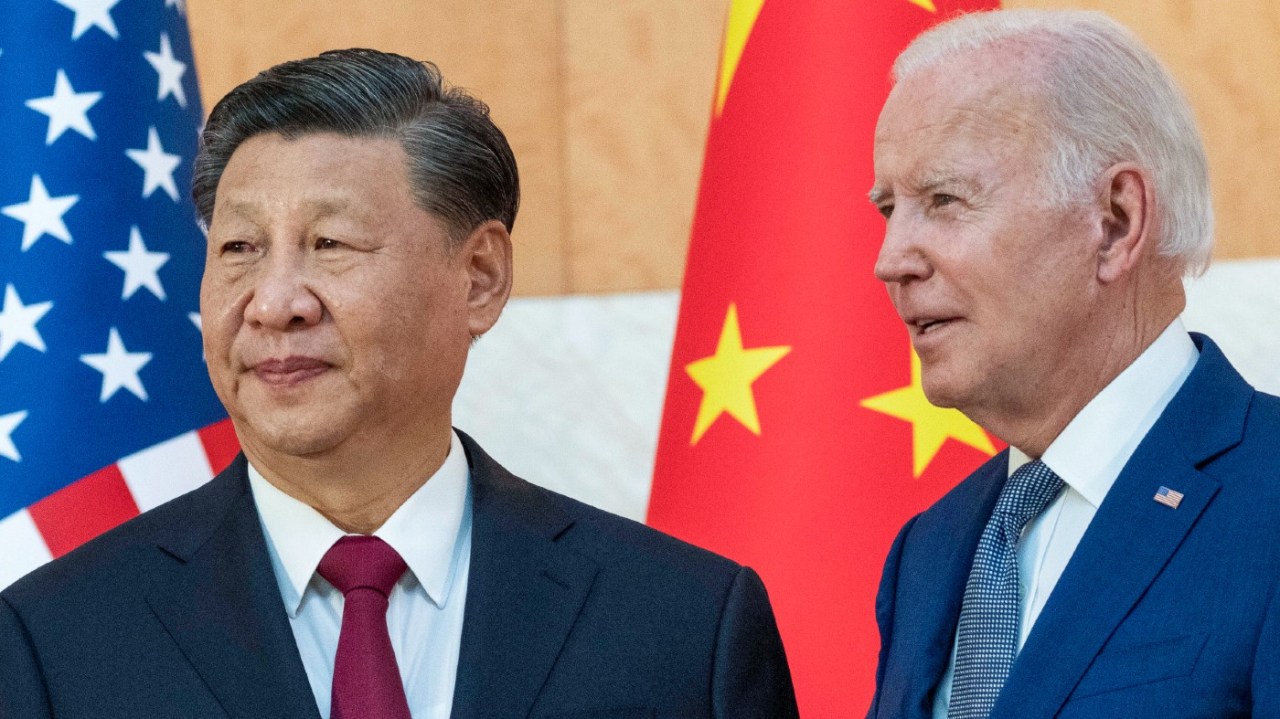With the U.S. economy doing surprisingly well and the stock market hitting record highs, many investors are calling what’s happening the “Goldilocks economy.” The main concern now is geopolitical, with the potential for the conflict between Israel and Hamas to spread across the Middle East.
However, my view is that there is also a risk that global trade tensions with China will be overlooked.
One source of tension is that Chinese leaders are expanding the country’s manufacturing and export capacity to offset the current economic downturn. The developments come as the European Union considers raising tariffs on car imports and other carbon-intensive imports, and as relations with China look set to become an issue in the U.S. presidential election.
On the surface, this development may seem unlikely, given that tensions between the United States and China eased late last year. President Biden and President Xi agreed to resume direct military talks, which had been suspended after former House Speaker Nancy Pelosi visited Taiwan in 2022, and their first meeting took place in early January.
Tensions between the two countries have also eased on the trade front. The Biden administration has sought to appease China by saying that the goal of U.S. policy is not to sever relations with China, but to “de-risk” relations with China.
So why might trade tensions flare up again?
The main reason, according to The Economist, is that “China is unleashing a new wave of deindustrialization in the rich world.” The report estimates that about 1 million U.S. manufacturing workers lost their jobs to competition from China from 1997 to 2011. This estimate seems low considering that manufacturing job losses at the time totaled about 6 million, which contributed to President Donald Trump’s 2016 victory.
The next wave is likely to be a mass export of Chinese cars, including an expanded share of electric vehicles. Last year, China overtook Japan to become the world’s largest car exporter, according to data from the Japan Automobile Manufacturers Association. According to Chinese customs authorities, that figure is 5.52 million units, an increase of more than 50% from a year ago, and one in three cars shipped is electric.
BYD, China’s largest manufacturer, has also dethroned Tesla in total EV sales with strong support from the Chinese government. The Economist reports that since launching its “Made in China” policy in 2015, China has “brazenly ignored global trade rules, providing its automakers with low-cost loans, equity injections, purchasing subsidies, government He points out that the government has provided benefits such as “contracts”.
The Chinese electric car maker aims to become a major player internationally, with a particular focus on Europe. BYD currently sells five models in Europe and announced plans to build a new factory in Hungary.
European Commission President Ursula von der Leyen accused China of flooding global markets with prices “artificially kept low by state subsidies.” Meanwhile, an investigation began in September that suggests that China may impose punitive tariffs on EVs that exceed the current standard tariff rate of 10% for imported cars.
Global trade could also become fragmented as the European Union seeks to impose the world’s first tax on the emissions of carbon-intensive imports, the Financial Times says. These include steel, cement, iron, aluminum, fertilizers, etc. Taxation will begin in 2026, but the transition is already underway. This issue is particularly important for the Chinese government, which is moving away from coal-fired blast furnace steel production.
The United States has so far not been unduly affected by these developments. However, there is a possibility that there will be a change in China-US trade policy after the US presidential election.
In 2018, President Trump imposed 25% tariffs on $50 billion worth of Chinese goods, starting a series of tariff hikes that ultimately affected about $380 billion worth of imports. According to a study by the Tax Foundation, U.S. consumers paid $80 billion worth of extra fees on these products, one of the largest tax increases in decades. The study estimates that the Biden administration’s unchanged tariff hikes would reduce long-term economic growth by 0.2% and result in the loss of 166,000 jobs.
Rising trade uncertainty also contributed to the nearly 20% decline in the U.S. stock market in the fourth quarter of 2018. According to a study by the Federal Reserve Bank of New York, the market capitalization of U.S. publicly traded companies has fallen by $1.7 trillion. Companies that do business directly with China will be most affected.
If the trade dispute escalates, this time it could be even more detrimental to the U.S. economy and the global economy for two reasons.
First, the tariff hikes that President Trump is telegraphing are broader than those in 2018-2019. He initially called for a flat 10% increase in tariffs. But he upped the ante in a recent interview, saying he could impose tariffs of more than 60% on Chinese goods.
Second, if the European Union goes ahead with its plans to raise tariffs on cars and “dirty” imports, the trade war could become global.
Such an outcome would pose a major threat to the post-World War II order envisioned by President Franklin D. Roosevelt to bring about world peace and prosperity. This is a risk that investors cannot ignore.
Dr. Nicholas Sargen is an economic consultant with Fort Washington Investment Advisors and affiliated with the University of Virginia Darden School of Business. He has written three books including “.Investing in the Trump Era: How Economic Policy Impacts Financial Markets.”
Copyright 2024 Nexstar Media Inc. All rights reserved. This material may not be published, broadcast, rewritten, or redistributed.
